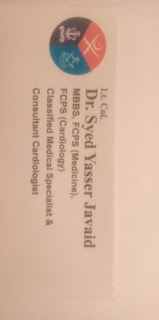Best Sleep Positions for Peripheral Artery Disease Enhance Comfort and Circulation
 |
| Best Sleep Positions for Peripheral Artery Disease |
Peripheral artery disease (PAD) affects a significant number of individuals, surpassing 6.5 million Americans aged 40 and above. This condition arises due to the accumulation of fatty plaque within arteries, leading to the obstruction of blood flow to the extremities, particularly the legs.While the management of PAD requires lifestyle adjustments and medical interventions, the significance of optimizing your sleep posture for enhanced comfort cannot be overstated. Curious about the ideal sleep position for peripheral artery disease? Let us guide you through it.
1. Elevating the Legs: Alleviating Discomfort
 |
| Best Sleep Positions for Peripheral Artery Disease |
Raising your legs while sleeping can significantly alleviate the discomfort associated with PAD. Slightly elevating the legs above heart level prevents blood from pooling in the extremities, which often results in notable swelling and distress.Furthermore, elevation capitalizes on gravity, aiding the return of blood from the legs back towards the heart. If you have an adjustable bed, adjusting the leg section is all that's required. Alternatively, for those using a conventional bed, achieving leg elevation is possible with the use of a series of pillows. Stack pillows lengthwise beneath your legs until they reach a comfortable height that is above heart level.
Beyond alleviating pressure, elevating the legs also aids in soothing muscle tension. If you experience persistent swelling and discomfort due to PAD during the day, elevating your legs emerges as the most beneficial sleep position for individuals dealing with peripheral artery disease.
2. Back Sleeping: Distributing Weight and Reducing Pressure
 |
| Best Sleep Positions for Peripheral Artery Disease |
If you fall within the category of the reported 90+ million Americans who snore, this tip might not resonate with you. However, research suggests that sleeping on your back can be advantageous for those grappling with PAD.
The reasoning is straightforward: back sleeping promotes an even distribution of weight, which subsequently reduces pressure on affected blood vessels. Reduced pressure translates to decreased discomfort.Furthermore, this sleeping position naturally elevates the legs and feet to a certain extent, consequently improving blood circulation. When combined with the strategic use of pillows to further elevate the legs, this posture provides an additional angle that eases strain on the lower back.
3. Side Sleeping: A Viable Alternative
 |
| Best Sleep Positions for Peripheral Artery Disease |
For those who find lying on the back with elevated legs impractical, side sleeping emerges as a viable alternative for peripheral artery disease sufferers.It's important to avoid tucking your legs towards your chest in a fetal-like position while sleeping on your side, as this could impede blood flow. Instead, ensure that your legs remain straight and aligned with your body. If maintaining this position proves to be a challenge, consider placing a pillow between your knees. This adjustment aids in better alignment and mitigates strain on the hips.
4 - Investing in Quality Bedding
The quality of your pillows and mattress plays a pivotal role in enhancing sleep quality for individuals with PAD. Memory foam mattresses or contour pillows are particularly beneficial as they offer targeted support, promptly relieving pressure.
Mattresses that offer adequate body support, especially around the hips and legs, coupled with pillows that provide proper neck and shoulder support, substantially aid PAD sufferers in achieving a restful night's sleep.
5 - Avoid Stomach Sleeping
Stomach sleeping is discouraged for individuals with PAD, and for good reason.Primarily, this position leads to the legs (extremities) being positioned lower than the heart, causing blood to pool in the lower limbs and resulting in pronounced swelling and discomfort.Furthermore, stomach sleeping places excessive pressure on the neck and spine, leading to discomfort and hindering blood circulation.
As a useful tip, if you find yourself prone to stomach sleeping, consider placing firm pillows, additional blankets, or a long body pillow on either side of your body. This technique helps prevent unintentional rollovers during sleep.
Key Takeaway: The Optimal Sleep Position for Peripheral Artery Disease
While there's no universal solution for PAD, certain sleep postures offer improved blood circulation and reduced discomfort. Elevating the legs above heart level or practising proper leg alignment while side sleeping are proven strategies that offer a degree of comfort.By giving due importance to appropriate sleep positions and investing in supportive bedding, you can significantly enhance sleep quality while effectively managing PAD symptoms.
Good News
Timely diagnosis empowers patients to make minor adjustments that enhance blood flow and counteract the distress and swelling associated with advanced PAD. Correct sleep positions could very well be among these adjustments.Even in cases where veins are considerably obstructed and the disease has advanced significantly, advancements in vascular medicine offer an array of treatments to alleviate PAD symptoms.If discomfort stemming from peripheral artery disease is disrupting your sleep, consider reaching out to the accomplished team at the Midwest Institute of Non-Surgical Therapy (MINT).
Dr. Mazhar badshah, a highly skilled vascular and endovascular specialist, utilises cutting-edge non-surgical outpatient techniques such as balloon angioplasty, atherectomy, and stenting to mitigate peripheral artery disease issues. Your journey towards improved sleep and enhanced comfort commences here.
Frequently Asked Questions About Sleep Positions and PAD
Q1: Can sleep positions really make a difference for people with PAD?
Absolutely. Adopting the right sleep positions can significantly improve blood circulation and alleviate discomfort for individuals with peripheral artery disease (PAD). Elevating the legs and practicing proper alignment while sleeping are key strategies.
Q2: Is sleeping on the stomach ever recommended for those with PAD?
No, stomach sleeping is not advisable for individuals with PAD. It can lead to blood pooling in the lower limbs and excess pressure on the neck and spine, exacerbating discomfort and hindering blood circulation.
Q3: Are there specific types of mattresses and pillows that are best for PAD sufferers?
Yes, investing in quality bedding can greatly enhance sleep for PAD sufferers. Memory foam mattresses and contour pillows provide targeted support and pressure relief, promoting better sleep quality.
Q4: How does back sleeping help individuals with PAD?
Back sleeping distributes weight evenly, reducing pressure on affected blood vessels and providing a more comfortable sleep experience for those with PAD. It also naturally elevates the legs and feet.
Q5: Can sleep positions alone replace medical treatments for PAD?
Sleep positions are not a substitute for medical treatments, but they can complement other management strategies. Proper sleep positions enhance blood circulation and comfort, contributing to an overall better quality of life for PAD patients. Always consult with a medical professional for comprehensive treatment advice.




